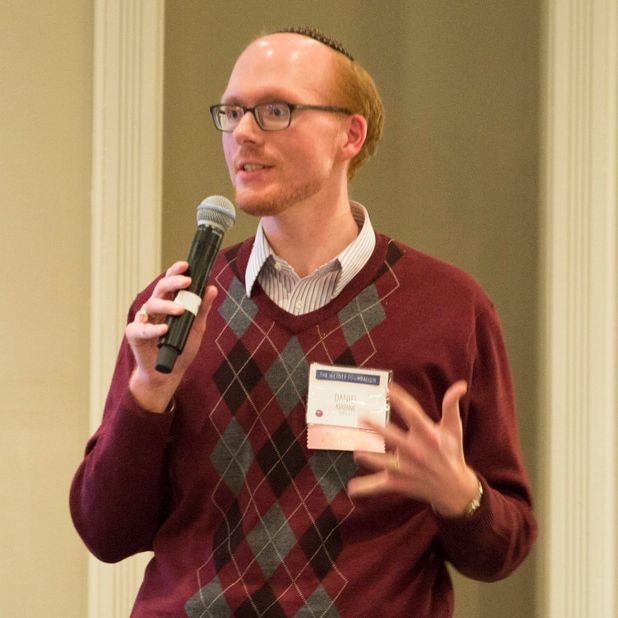|
I graduated today from the University of Chicago Divinity School with an MA in Divinity. My sermon this week reflects on a few key themes that have animated my study at the university these past five years.
0 Comments
I speak this week about the rare cantillation mark called the shalshelet (chain). Linking together the instances of the shalshelet in the Torah, we can see a common theme - they indicate hesitation to do the right thing. What does this teach us about Moses and his relationship to his brother, Aaron?
For our family service, I gave myself the challenge of telling a story that could appeal to listeners of all ages about the building of the mishkan, the Hebrews' portable sanctuary in the wilderness. The story featured Bezalel and Oholiab and lifted up the latter as particularly important for his supreme ability to teach.
Sometimes, I deliver a sermon just based on notes; I don't usually post them publicly because they're hard to follow in written form. This week, my notes were substantial enough that a reader could follow them, so I thought I'd share. The theme for this sermon was the relationship between darkness and light, drawing on the ninth plague of darkness, and the importance of human beings seeing one another.
In my sixth year of service as Oak Park Temple's associate rabbi, I announced that I had accepted the pulpit of KAM Isaiah Israel in Chicago's Hyde Park. This sermon addresses themes of renewal that intersect with changing congregations, the new year, and starting a new book of Torah.
The winter solstice is Homeless Person's Memorial Day. I was invited to speak at the annual memorial service for clients of Housing Forward, our local service provider for people struggling with housing insecurity, who had died in the past year. I decided to include these remarks in my Shabbat sermon, which I dedicated to deepening our awareness of local homelessness.
I actually don't think we have to fear fear itself. Fear is normal, and the most important thing is not to be overwhelmed by fear. Fear can motivate us to act--sometimes for the better and sometimes for the worse--and one way or another, we best face the truth when we become intimate with our fear.
The Simchat Torah attacks on Israeli civilians continue to haunt us two weeks out, and Jews around the world anxiously watch Israel's response unfold. There's no "right answer" to what should come next, but the timeless values of the Torah should be guideposts to moral decision-making.
Self-knowledge is an vital Jewish value, and it's especially important to Yom Kippur. Cheshbon nefesh, the "accounting of the soul" requires an honest exploration of what we've done and who, deep down, we are. I explore two sides of cheshbon nefesh, using my own journey of learning I have autism as a case study in self-understanding.
There are two different accounts in the Torah about the wilderness generation. In one, they are doomed to die in the desert for their lack of faith in God. In the other, they use the forty years of wandering to prepare themselves to enter the land. The Torah ultimately sides with the former story. Why? How might Judaism look different if we told of a generation of slaves who themselves, after a period of waiting, entered the promised land?
|
About“To be effective, the preacher's message must be alive; it must alarm, arouse, challenge; it must be God's present voice to a particular people.” Archives
May 2024
|

 RSS Feed
RSS Feed